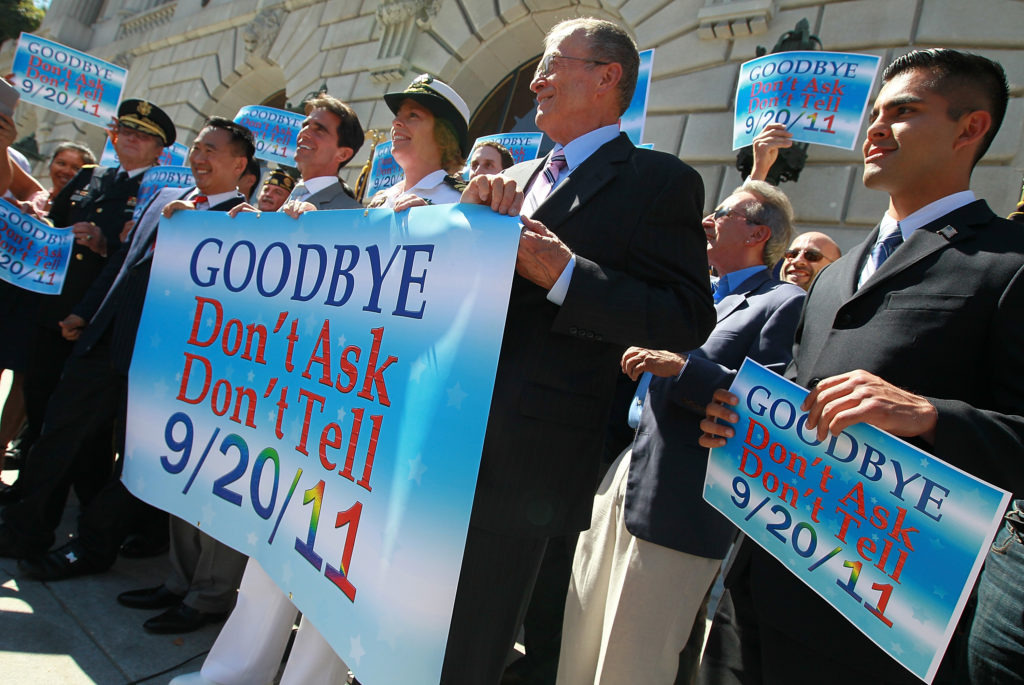Gay Veterans Dishonorably Discharged Can Reclaim Benefits Under Rhode Island Law
Rhode Island’s governor kicked off Veteran’s Day weekend by approving legislation that will extend local and state benefits to veterans who were dishonourably discharged for their sexuality.
It’s estimated that more than 100,000 LGBT+ people were ‘dishonourably’ or ‘less than honourably’ discharged from the US military between World War II and the repeal of the ‘Don’t ask, don’t tell‘ policy in 2011.
On Friday, November 8, Governor Gina Raimondo ceremoniously signed the crucial legislation allowing these veterans to reclaim the benefits they deserve.
“In the state of Rhode Island, if you’re a veteran who’s served, you oughta be eligible for veterans benefits that the state provides,” she told local stationWLNE-TV.
The bill, which also encompasses gender identity and gender expression, was first signed into law in June. It provides a streamlined petition process to have a discharge from service recorded as honourable, thus restoring the veteran’s benefits.
It’s a hugely important step in light of the Trump administration’s attacks on transgender service members.

“Far too many veterans have been discharged, shamed and left without the benefits they earned because of decades of a dehumanising policy that said they couldn’t serve,” Rhode Island Senator Dawn Euer, one of the bill’s sponsors, said in a statement.
“They deserved gratitude and honour, and we should be doing everything we can to ensure that these wrongs are righted and that they get the respect they deserve.”
For years after ‘Don’t ask, don’t tell’ was repealed, the process for scrapping a dishonourable discharge was a “cumbersome” process that was “shrouded in mystery,” according to Andy Blevins, executive director of the Modern Military Association of America.
He told NBC: “If an individual is discharged under ‘don’t ask, don’t tell’ with something less than honourable, like most of them were, they would not receive those benefits.
“There was nothing enacted after ‘don’t ask, don’t tell’ that would give those benefits back, and that’s why what Rhode Island did is so incredible.”